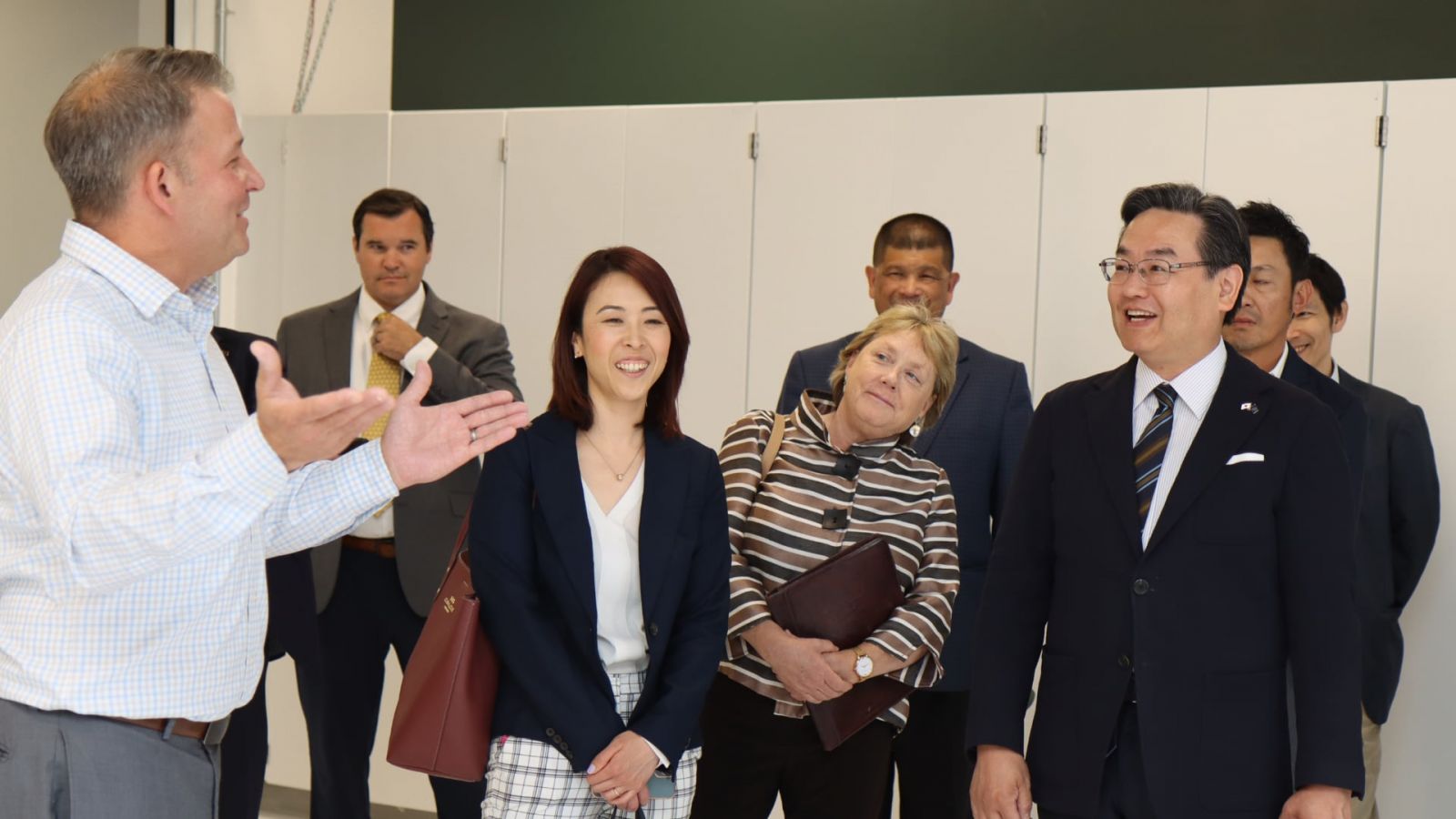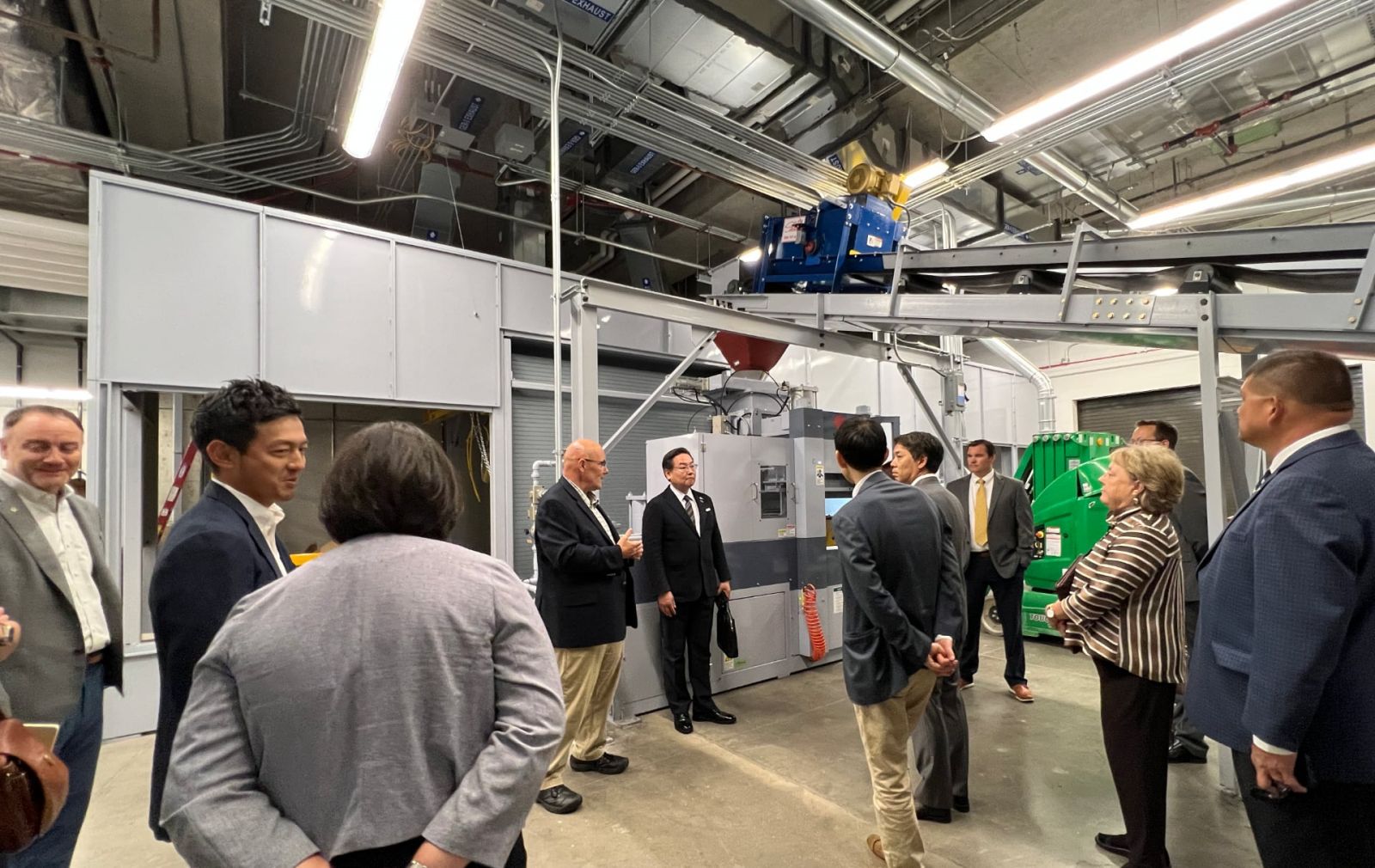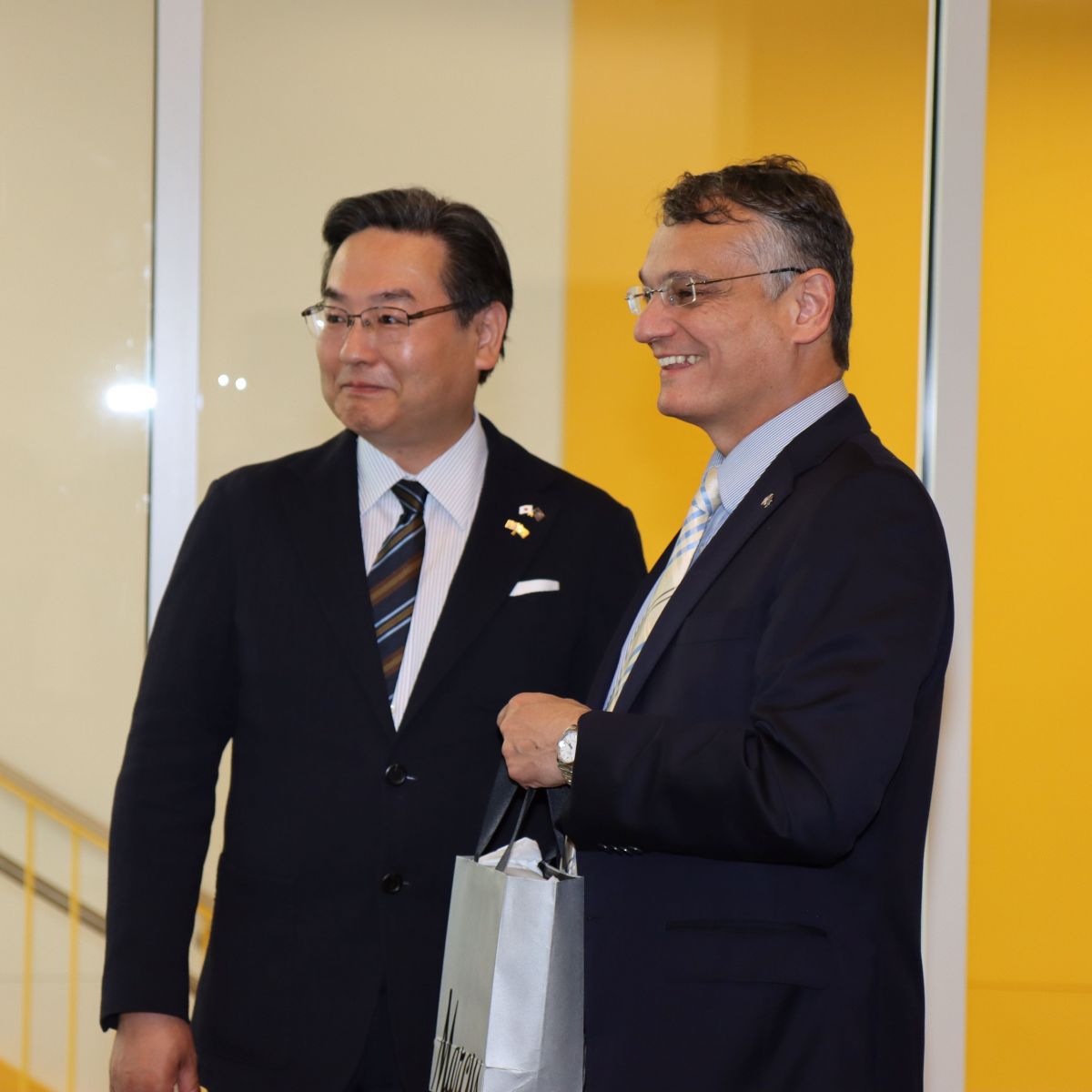
On Thursday, June 22, Purdue University’s Polytechnic Institute hosted Consul-General Hiroshi Tajima, the chief executive of the Japanese Consul to the Midwest based in Chicago.
The office of the consul-general to the Midwest seeks to foster a positive relationship between Japan and the American Midwest which Purdue University calls home. Part of this mission involves bridging gaps between institutions such as higher education and innovative regional businesses.
To this end, Purdue Polytechnic’s Dean Daniel Castro met with Consul-General Tajima in the newly dedicated Dudley and Lambertus Halls, replete with innovative Polytechnic lab facilities. The duo was joined by representatives from Fishers, Indiana-based next-gen software manufacturing experts Flexware Innovation and their Japanese-owned parent division, Hitachi Industrial Holdings Americas.
Flexware’s SparkMES program is now the official software used in Dudley Hall’s Smart Factory. The visit therefore provided Polytechnic faculty the opportunity to showcase the benefits of Flexware’s involvement in the facility to partners at Hitachi and the consul-general.
“This is not how manufacturing has been done for the last sixty, seventy years,” said Tim Updike, operations director for Purdue Polytechnic’s School of Engineering Technology. “Instead, we’re showing our students how their work can connect, in a live factory setting, with new technologies in robotics, or 3D print modeling, or any kind of innovative practice that will make the manufacturing process more efficient.”

Flexware’s Chief Operating Officer Greg Stevens similarly mentioned the benefits of the Smart Factory as a live, in-house manufacturing education center. “This also provides us the opportunity to show clients or partners in manufacturing from around the whole Midwest how something like our software works in an actual facility. It’s a big improvement to only being able to simulate things in a lab for them,” Stevens stated.
Over 300 companies in Indiana are now Japanese-owned, and the state government of Indiana has said that the state has the largest amount of Japanese investment per-capita of any U.S. state or territory.
Purdue Polytechnic’s facilities are of interest to this international cooperation in part because Japan has a storied history of creating innovative manufacturing processes. For instance, Lean Six Sigma, an efficiency-boosting business operation philosophy, has its roots in the Japanese kaizen (lean manufacturing) discipline. At Purdue Polytechnic, faculty such as Chad Laux, associate professor of computer and information technology, have published widely on the topic and created systematic approaches to teach Lean Six Sigma, indicating a broad, cross-cultural similarity in business perspectives with Japanese investors such as Hitachi.
“Part of what the Smart Factory is doing is showing students how the entire setup of industrial manufacturing is going to change as we move into Industry 4.0,” Grant Richards, assistant professor of practice in engineering technology, explained to Tajima. “Facilities are changing over from high-volume, low-customizability products to lower volume but highly customized goods. And that requires a radically different skill set for the upcoming work force, much less a radically different set of machines and computer brains to do that work.”
Tajima also showed interest in the computing end of the Smart Factory, asking Richards about the nature of the data being captured throughout the smart manufacturing process.
“This place has been designed to be a big data-generator for students. To actually study applications of machine learning or AI in a manufacturing context, you need to basically generate data on your own factory from scratch. A company isn’t just going to give that information to us, because that’s their [intellectual property]. So we’re generating that telemetry from the manufacturing devices ourselves,” Richards explained. Flexware’s SparkMES program is designed precisely to help capture and interpret that data.
Stevens, Flexware’s COO, explained that these systems will provide radically new opportunities to students that didn’t exist during his time as an industrial engineering student at Purdue.

“We love that we’re involved here, because students can get exposed to the type of work we do for manufacturers. And it’s all before they’re out of school, already working in the industry,” Stevens said. “I was here from 2002 to 2006, and some of that experience was happening through internships. But now, this really embeds it into the education process, which is great because these students might even be in the pipeline to work with us or at least get what we’re doing.”
As it stands, Stevens said that “around forty percent” of Flexware’s employees “as well as the founder and most of the executive team” are all Purdue alumni.
Castro emphasized an especially close-to-home connection with Japanese business to Tajima — Purdue Polytechnic’s site within Lafayette-based Subaru of Indiana Automotive.
“We’re very actively promoting that institution, which currently has around seventy students at the moment,” Castro said. “This is a great, degree-granting part of the Polytechnic that we’re very proud of, in no small part because we’re actively involved in the community there. We’re doing much more than just telling people to come to campus to get an education — we’re going to them.”
Additional information
- Photos of Consul-General Hiroshi Tajima’s tour of Purdue University’s Dudley & Lambertus Halls (Flickr)
- Purdue Polytechnic Smart Learning Factory
- Dudley and Lambertus Hall (Gateway Complex) information
- Dudley and Lambertus dedication
- Kaizen Training and the Lean Six Sigma Approach (Purdue learning certificates)
- “The Ten Commandments of Lean Six Sigma” (co-authored by prof. Chad Laux)
- Purdue Polytechnic Lafayette, located in Subaru of Indiana Automotive
